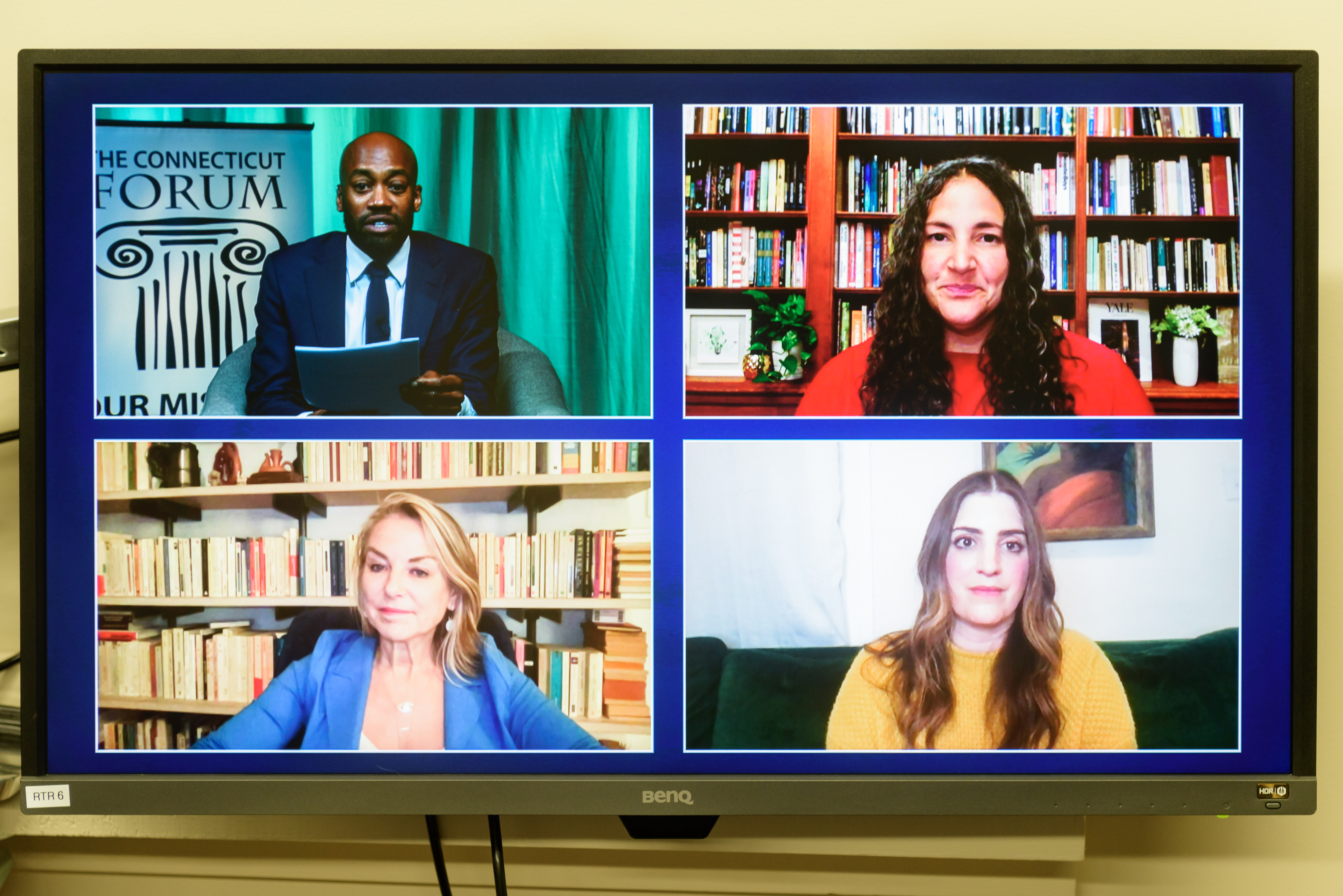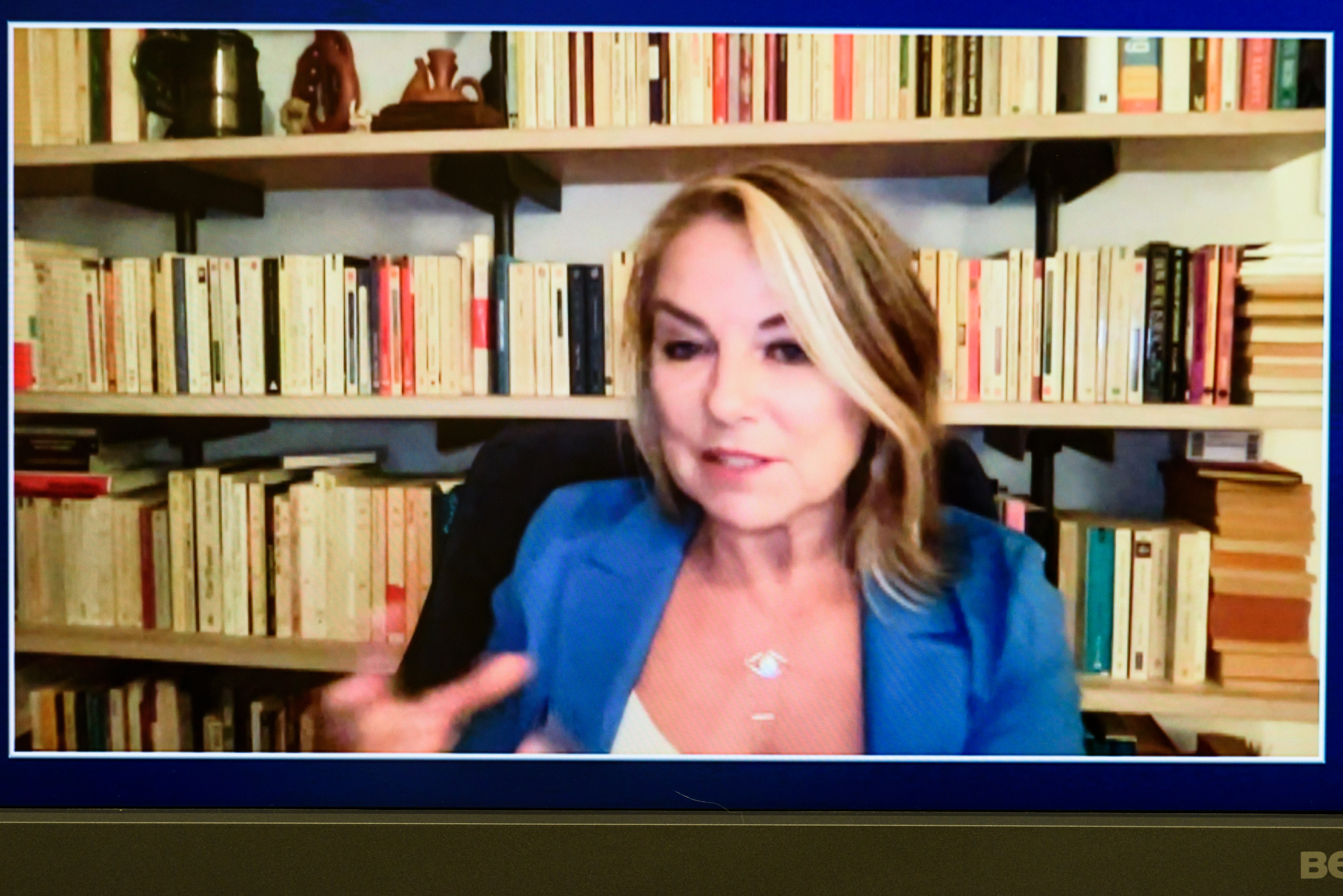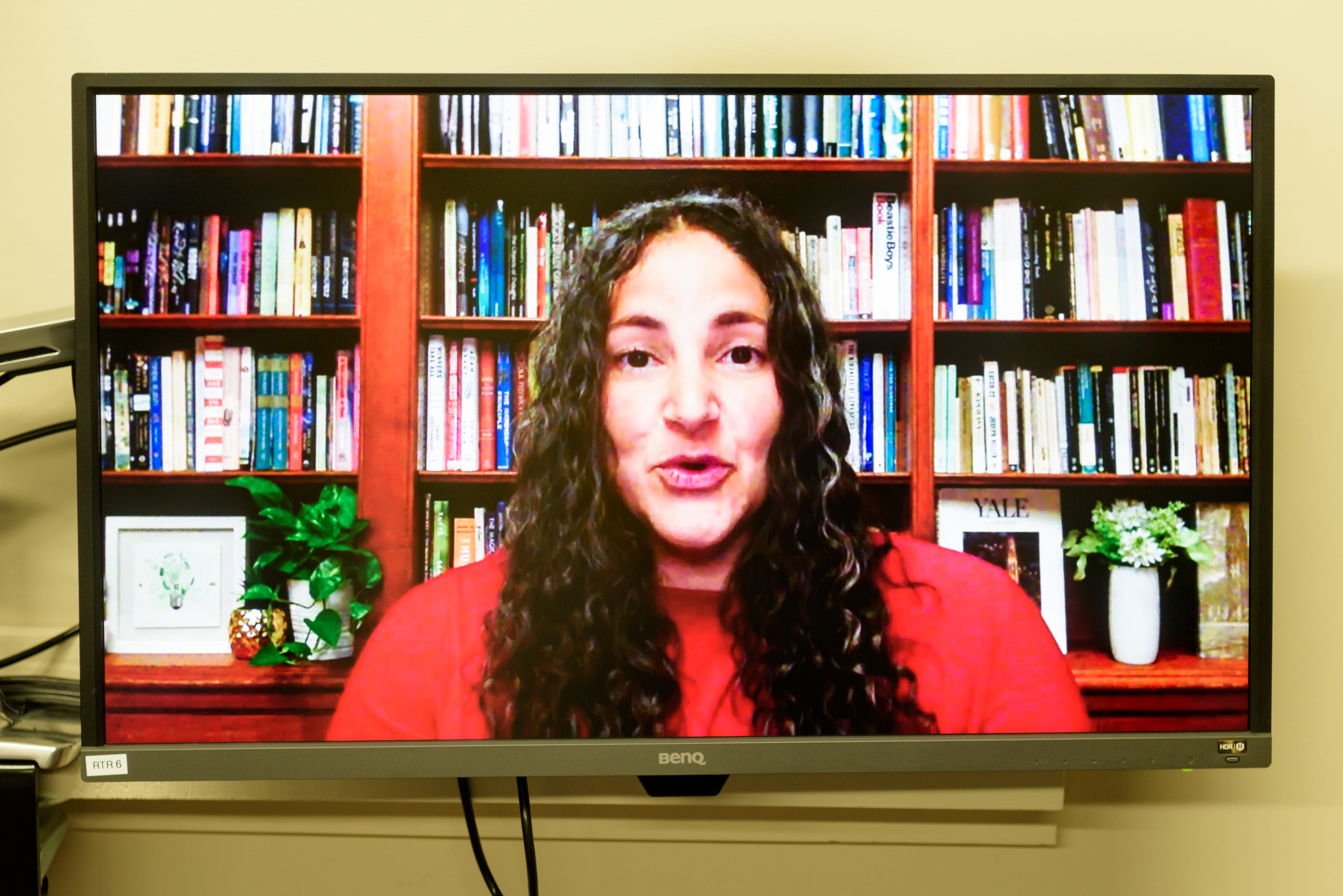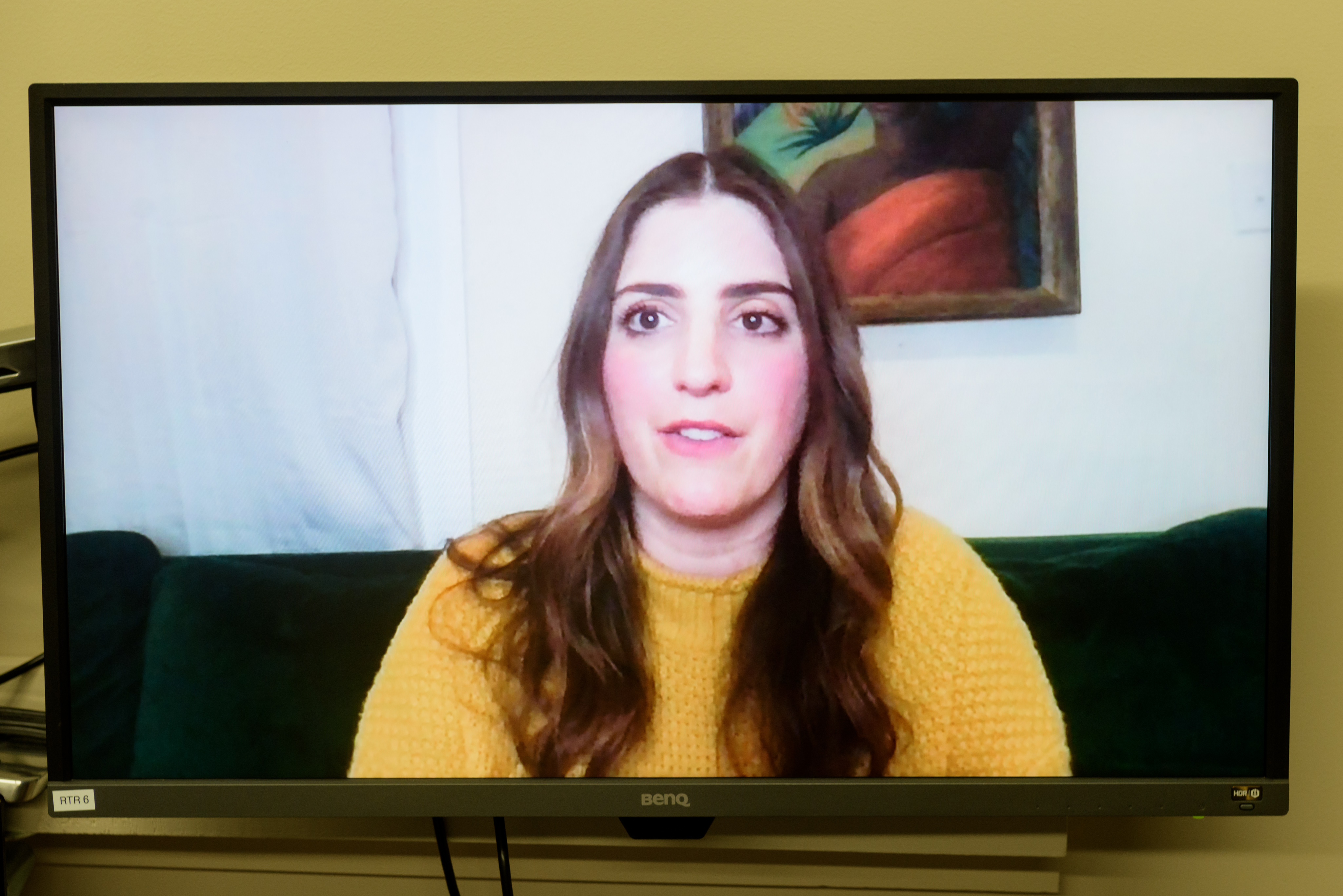By Lucie Turkel for The Connecticut Forum
The secret to living a happy life is something that humans have grappled with for as long as we can remember and has especially come to a head as we continue to live in a world of isolation and novelty due to a global pandemic. This is why The Connecticut Forum’s most recent panel, Happiness, Meaning & Fulfillment, featuring esteemed panelists Laurie Santos, Suleika Jaouad, and Esther Perel was especially timely and uplifting.
The discussion, moderated by Forum regular Sam Sanders, was positive and honest without avoiding the difficult. Sanders began the discussion by asking all three panelists to reflect on how their thinking surrounding happiness and meaning has changed after a past year of living through a pandemic. Santos explained how the pandemic made her realize how much she was taking for granted in her everyday life, such as seemingly inconsequential actions like walking into a grocery store without a mask or grabbing a casual coffee with a friend.

“True happiness is being present and allowing the world to be there just as it is.” –Laurie Santos
Jaouad, who was diagnosed with leukemia at the age of twenty-two as documented in her “Life, Interrupted” New York Times column along with her memoir Between Two Kingdoms: A Memoir of a Life Interrupted, discussed how the pandemic and subsequent isolation felt similar to her experience of being confined to a hospital bed for the first half of her twenties.

Perel also felt a familiarity with the feeling the pandemic caused — with both of her parents being Holocaust survivors, she explained how the idea that one’s life could stop overnight was a sense of dread she had always lived with.
Not only has the pandemic affected the wellbeing levels of individuals, but couples and families have also felt the strain of the virus. Throughout the conversation, Perel, a psychotherapist who specializes in couples therapy, discussed the complications that can arise when being with the same person 24/7. She explained how positive communication and outward acknowledgment of what your partner does right (rather than just focusing on what s/he does wrong) is one way to break the cycle of monotony and frustration that can understandably arise from such a tense situation.
“A good intervention is simple and small but runs deep and wide,” Perel said.

In a similar vein, Santos pointed out the way in which the pandemic has disrupted normal social routines and created a jumbled relationship between work and home, both of which are important for a balanced and happy life. Santos suggested that each of us find ways to reincorporate these routines back into our lives, whether it be something as simple as dressing up for a dinner at home. “We have to bring the Mister Rogers rituals back into our lives,” Santos explained, referring to the beloved television host Fred Rogers of the series Mister Rogers’ Neighborhood.
Happiness is “when we can feel both the anchor and the waves. When we feel both grounded and exploratory.” –Esther Perel
The panelists didn’t only discuss the ideas of happiness and wellbeing in relationship to the current pandemic, but also as feelings and actions in their own right. When asked about her definition of happiness, two words came to Jaouad’s mind: Time and freedom. She viewed happiness as the integration between the past, present, and future while still being able to be anchored in the now. Perel echoed this metaphor of the anchor, explaining that happiness is “when we can feel both the anchor and the waves. When we feel both grounded and exploratory.”
Throughout the panel, two key factors were discussed in regard to boosting one’s happiness: aging and exercising gratitude. Santos, who focuses on the scientific aspect of the study of happiness as a cognitive scientist and professor of psychology at Yale University, explained how data shows that happiness and wellbeing naturally increase as you age. Perel added that as one ages, one’s confidence naturally increases. However, she made clear the importance of not conflating confidence with flawlessness.
“Confidence is our ability to see ourselves as flawed individuals and still see ourselves in high regard.” –Esther Perel
Santos also provided evidence that grateful people are happier people. Forcing oneself to practice gratitude by writing down three things one’s grateful for at the end of every day can increase wellbeing levels in just two weeks, she noted.
“There’s a big difference between surviving and living,” –Suleika Jaouad
Jaouad was clear to point out the difference between happiness and toxic positivity. She explained that for survivors of any kind of trauma, there’s a strong emphasis placed on them to be grateful for life which is an extreme amount of pressure to place on anyone, let alone someone that just suffered the unimaginable. “There’s a big difference between surviving and living,” Jaouad said.

As a wrap-up question, Sanders asked the panelists to explain the term happiness using different words. Perel used terms such as “calm,” “whole,” and “free”; Jaouad described it as a sense of “freedom from the anxiety of accomplishment and the culture of busyness;” and Santos succinctly put it as, “True happiness is being present and allowing the world to be there just as it is.” I think it’s safe to say that we’re all feeling just a little bit happier after this enlightening talk.
Lucie Turkel, CT Forum intern, is a cultural journalist, researcher, and digital producer specializing in social justice, history, and lifestyle pieces. Her work has appeared in Reader’s Digest, Phi Beta Kappa Honor Society’s Key Reporter journal, the University of Connecticut Daily Campus, and UConn Communications.






 View All Sponsors ›
View All Sponsors ›
